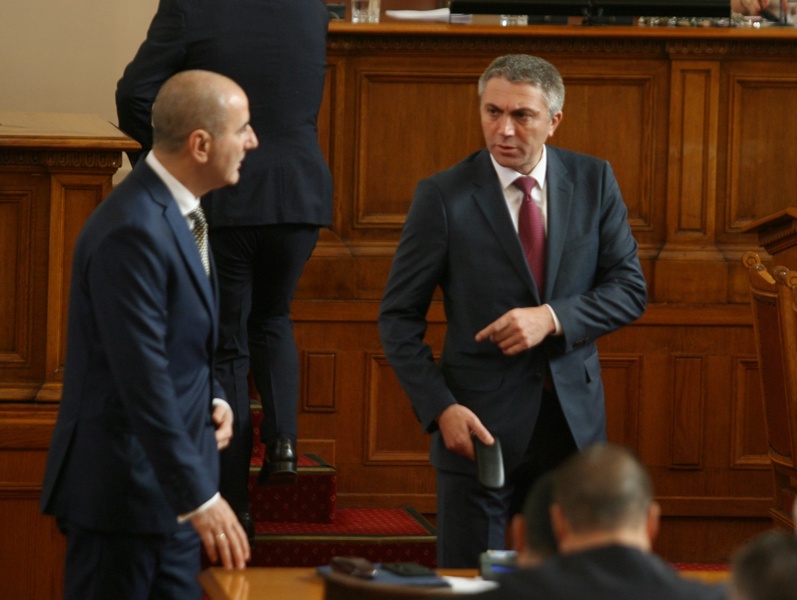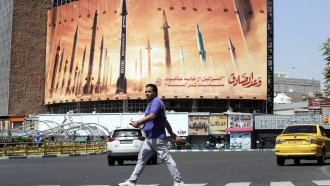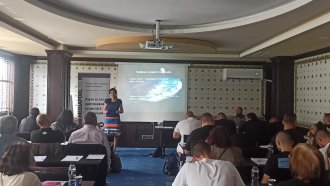Commentary:
An overview of this week’s legislative lovechildren between GERB and the Movement for Rights and Freedoms

This week marked some important financially uplifting developments for certain powerful individuals and groups in the country. It also reaffirmed the long-standing unofficial coalition between the ruling majority and the Movement for Rights and Freedoms (DPS). This incredible partnership, unparalleled in its efficiency, works to the benefit of particular power nodes in the captured state like Delyan Peevski, Ahmed Dogan and their network of own and friendly companies.
Several events over the week might have otherwise seemed unrelated, but as they are all similar in their benefit to DPS and Peevski. Some are striking for their significance, others – for the lack thereof. But this lack is evidence of the unbelievable fear the majority (just as the opposition) has of Peevski.
One of the most important events of the week was DPS, GERB and the United Patriots introducing a bill to Parliament, which opens the door for quick, easy and – most of all – cheap sale of bankrupt banks. This is obviously tailored to the assets of the bankrupt Corporate Commercial Bank for a fraction of their worth (more on that below) and apparently to certain groups and individuals who might want to acquire them and not spend a lot while they’re at it. One particular section of the bill maps out a scheme for how to do it: fake three public auctions and then let the assignee ‘negotiate’ whatever price they deem appropriate with a buyer. Efficient.
Meanwhile the European Commission made it clear that the Bulgarian law enforcement agencies seemingly wittingly ignore information about suspicious transactions, provided by banks, if these transactions involve a politician or high-ranking official. They take no action to investigate such instances and so the case gets closed before it even opens. This is protectionism on another level. Of course, this is common knowledge in Bulgaria but it is always refreshing to have the European Commission make the assertion. It is the only time someone in power might be forced to explain what is otherwise on plain sight. In any other instance officials deny any notion of corruption or even inefficiency. But even that is rare, as the government-friendly media (i.e. most media, and growing) are there to cover-up any and all wrong doing.
The media landscape in Bulgaria is in a desperate decline. Most print media are owned by Peevski, half of all the rest are part of the wider network around him. Likely as result of successful lobbying key positions in the public Bulgarian National Television became occupied by persons, who are more or less a part of the same group. The second largest private TV, NOVA TV was just bought by the infamous brothers Domuschiev, also friendly to power and powerful in their own right. The deal is only an approval from the Commission for the Protection of Competition away from being final.
This Majority-DPS intertwinement also found a reaffirmation with stalling to deliver restoration to the Elections Act, after DPS got what they wanted and effectively repealed the preference vote (more on this below).
These are all critical and very large-scale events with potentially even larger implications. And they can only be achieved in an establishment with no real opposition to the power centers.
Another event though was not as impactful in of itself. But it did demonstrate the majority’s submissiveness to these power centers, and namely Peevski and the case has to do with his salary.
Peevski is an MP but he never sets foot in Parliament. The largest parliamentary opposition the Bulgarian Socialist Party boycotted Parliament two weeks ago. The majority moved to introduce amendments to the Parliament’s regulations so BSP MPs wouldn’t receive their pay for the days they were not in Parliament. And just as they were going to introduce them, GERB folded. The vote was even on Thursday’s session’s agenda but GERB did not introduce them in the last second.
The official reason is something trivial, but what is not trivial is that such amendments would cause Peevski not to receive his salary from Parliament.
This is not too impactful: one MP’s salary cannot compare to the major changes and structural corruption of the entire institutional make-up of the country. But precisely its insignificance is what shows the pathological fear and submissiveness of GERB to Peevski: they even risk this exposure, and the embarrassment of cancelling the bill, just so they don’t affect him in any negative way. Not only is this alone cause for concern, but the easiness by which it is demonstrated is disturbing and frightening. Because among other things, it says this is the well-established norm.
Meanwhile the honorary leader of DPS Ahmed Dogan now officially owns the mansion he lives in Boyana. The mansion is now an asset of TPP Varna: The thermal power plant Dogan managed to acquire last year for the staggering 3500 leva. Entirely legal.
At least some may rest assured that you don’t have to be from DPS to enjoy certain joys: the week ended with the Anticorruption Commission ruling that the financial minister, Vladislav Gouranov lives in a 180 square meter luxury apartment, which is not his, nor his family, and does not pay rent to the owner – his godfather – does not put the minister in a conflict of interest.
In other news:
Bulgarian law enforcement agencies cover-up politicians’ money laundering schemes: European Commission report

The State Agency for National Security (DANS) and the Prosecutor’s Office fail to investigate financial crimes related to money laundering done by politicians, a report by the European Commission concluded.
The report states that law enforcement agencies in Bulgaria rarely follow up on information of money laundering or other financial fraud schemes when they relate to a well-known figure in politics.
“Potential financial schemes are not investigated well. 2/3 of the suspicious transactions, reported by the financial institutions to the Financial Intelligence office [of DANS] contain local political figures but these cases do not yield appropriate law enforcement actions”, the document states.
According to the European Commission there hasn’t been any substantial progress in finding and defining the reasons, which prevent law enforcement agencies from taking genuine investigative action capable of producing admissible evidence.
The European Commission also notes that the country has still not finalized a basic instrument for combating money laundering, which is the so-called national Risk Assessment.
It should be noted that DANS’s Financial Intelligence Office’s last report for its activities for 2017 fails to mention any instance of suspicious transactions regarding politicians or high-ranking officials.
MPs move to ease process for liquidation of assets of collapsed bank

Four MPs introduced a bill of amendments to the Insolvency Act, which will affect the lawsuit for the collapse of the Corporate Commercial Bank (KTB) and the liquidation of its assets.
The bill was submitted to Parliament by four MPs: two from the Movement for Rights and Freedoms (DPS) – media mogul Delyan Peevski’s party, whose media empire was largely financed by KTB, one from the largest ruling party GERB and one from its coalition partner, the United Patriots.
The amendments refer to the rules governing the liquidation procedures of the bank’s assets. Specifically, it makes it easier for the assignees to sell them. For example, the bill provides a rule whereby if an asset has failed to sell in a public auction three times, the assignee may sell it directly to a buyer. More importantly, the assignee may enter negotiations ignoring the opening price of the asset as set for the auction. This is a significant change. The current legislation provides for assignees to negotiate with direct buyers in some instances but negotiations cannot go lower than the opening price set at the public auction for the asset.
Admittedly KTB’s assets have proven very difficult to sell. And the amendments do introduce an important relief in entering these procedures: the bill does away with the initial state fee, which the assignee or the bank must pay in order to begin selling an asset. This is arguably reasonable, as these fees are high and as KTB’s assets have already proven to be very hard to sell, the fees may even block the liquidation altogether, because no one would be willing to pay them.
Adopting the former amendments, however, raise more doubts than trust regarding the true intentions and interests, which lay behind them. While it may be argued that KTB’s assets are practically unsellable, given the bank’s connectedness to the underworld and overall shadiness, it is worth raising the concern that these amendments aim (or will at least provide the opportunity, which many might wish for) for KTB’s assets to be sold to specific groups and individuals at giveaway prices. Defining the impossibility for an asset to be sold just based on three failed public auctions also rings suspicious: it is not difficult to organize an auction in a way that ensures its ultimate failure, if that is what’s intended.
This is the second legislative initiative to amend the Insolvency Act since the collapse of KTB, and which is clearly designed to influence the liquidation process and lawsuit for KTB’s collapse. Delyan Peevski was the co-author of the previous bill, and thus quickly became known as Peevki’s KTB Bill. The bill was passed by Parliament in March 2018 with the votes of GERB, DPS and the United Patriots.
Peevski’s KTB bill is still quite controversial as it gives the right to make backdated annulments of cessions and offsets made during the time the bank was under the custody of bank receivers. President Roumen Radev did veto the bill, but it was defeated easily with the votes of the three parties, who supported it.
After Parliament passed the amendments, the Supreme Court of Cassations challenged the legislation in the Constitutional Court. The court has not ruled on it to this day, which is why the bill has still not been enacted.
Majority to defeat President veto on Elections Act amendments but will amend the amendments later

GERB and the United Patriots will vote to defeat President Roumen Radev’s veto on the controversial amendments to the Elections Act, which Parliament passed last week. The amendments introduce a new threshold for rearranging the positions of the candidates in a ballot in a way, which render the entire preference vote inapplicable. The bill of amendments was introduced by the Movement for Rights and Freedoms (DPS) and backed by the ruling coalition.
Following public backlash to the vote, GERB promised to reverse the amendments and to restore the previous thresholds of the preference vote, but it was unclear how would they go about and do it. Parliament had already passed the bill and it was a President’s signature away from being enacted. The President had declared he would veto the bill (which he did). Which left GERB with two options if it planed on delivering on the promise to restore the preference vote: either use the veto to change the problematic sections or introduce a separate bill of amendments to tackle the legislation, which would already be law.
Now the governing coalition has announced it will choose to do the latter. Tsvetan Tsvetanov, the majority leader in Parliament, announced the decision Thursday after an internal coalition meeting. He had apparently persuaded two of the United Patriots parties – ATAKA and VMRO – in voting against the veto. They were adamant they would vote in favor of the veto just the days before.
But the ruling coalition still stands by its declaration to restore the preference vote. The reason why they will be voting against the veto, as they explain it, is that the veto regards not only the sections concerning the preference vote, but also the parts, which reverse machine voting implementation and provisions regarding the Central Elections Commission’s challenged decisions in court. Tsvetanov claims that these are not sound and so they will vote down the veto. Instead they will be introducing a new bill of amendments, which only tackle the preference vote.
Four banks back Domuschiev brothers for NOVA TV acquisition

A consortium of four banks have provided the 185 million euro to the Domuschiev brothers to acquire Nova Broadcasting Group, of which the second largest private TV network is a part of. The deal was announced on February 22 and is still pending approval from the Commission for the Protection of Competition.
The commission blocked a previous deal basically saying the company is too large to be sold. The ambiguous reasoning made room for speculation that the commission is biased against the prospect buyer: Czech billionaire Petr Kellner, who also owns one of three Bulgarian mobile operators, Telenor.
As the company is just as large now as it was a year ago when Kellner failed to acquire it, it is curious as to how the commission will rule this time, and especially, if it rules different.
Nurses, midwives and lab professionals hold nationwide protest for dignified wages

Medical nurses, midwives and lab professionals began a nationwide protest on Friday demanding dignified wages. The protesters demand a start payment of two minimum salaries (1120 leva under the current minimum wage legislation) for all healthcare specialists regardless of their place of employment of the specific hospital’s type of ownership: municipal, regional, state or private.
Furthermore, the protesters ask for new regulations for overtime and for the pay to be tied to the workload (and increase accordingly), for the night shifts to be paid on hourly basis, higher salaries for workers in emergency rooms and intensive care units and more.
A day before Friday worker unions and the nurses’ guild organization met with PM Boyko Borissov and Health Minister Kiril Ananiev to discuss the demands. The two organizations declared they do not support the protest of the medical professionals, which was organized via social media, and they only support their demands. After the meeting Ananiev announced that the salaries of these medical staff will be increased, but only within the framework of the additional 30 million leva, which the Cabinet recently granted to 171 hospitals. It is unclear what this means in terms of actual wages increase.
These additional funds are not specifically for salaries, though. Although Minister Ananiev claims ‘most’ are for that purpose, there is no way of knowing neither how much, nor if the statement is at all true. Most hospitals have problems covering all their costs. These 30 million (which also are a one-time subsidy) are meant to provide a general help to the hospitals, which struggle to cover all kinds of expenses, have outstanding payments, liabilities, are in desperate need of renovations, which they could not afford, etc. Smaller municipal hospitals cannot even afford to raise their staff’s wages to match the most recent consensus on the minimum wages for these medical professionals, which were raised from 700 to 900 leva per month as of 2019. So, it is difficult to say what impact would those 30 million have in terms of salary increase for the protesting medical professionals, and even more so – how sustainable it would be.
Protests were held in Sofia in front of the building of the Ministry of Health, and also in Bourgas, Varna, Kardzhali, Lovetch, Montana, Pazardzhik, Petrich, Pleven, Plovdiv, Sliven, Stara Zagora, Troyan and Tryavna.
Ключови думи
За честна и независима журналистика
Ще се радваме, ако ни подкрепите, за да може и занапред да разчитате на независима, професионална и честна информационно - аналитична медия.
 1 коментар
1 коментар
Екипът на Mediapool Ви уведомява, че администраторите на форума ще премахват всички мнения, съдържащи нецензурни квалификации, обиди на расова, етническа или верска основа.
Редакцията не носи отговорност за мненията, качени в Mediapool.bg от потребителите.
Коментирането под статии изисква потребителят да спазва правилата за участие във форумите на Mediapool.bg
Прочетете нашите правила за участие във форумите.
За да коментирате, трябва да влезете в профила си. Ако нямате профил, можете да се регистрирате.





Тия шушумиги не са ли чули Тимерманс за чутовните ни успехи в съдебната реформа?